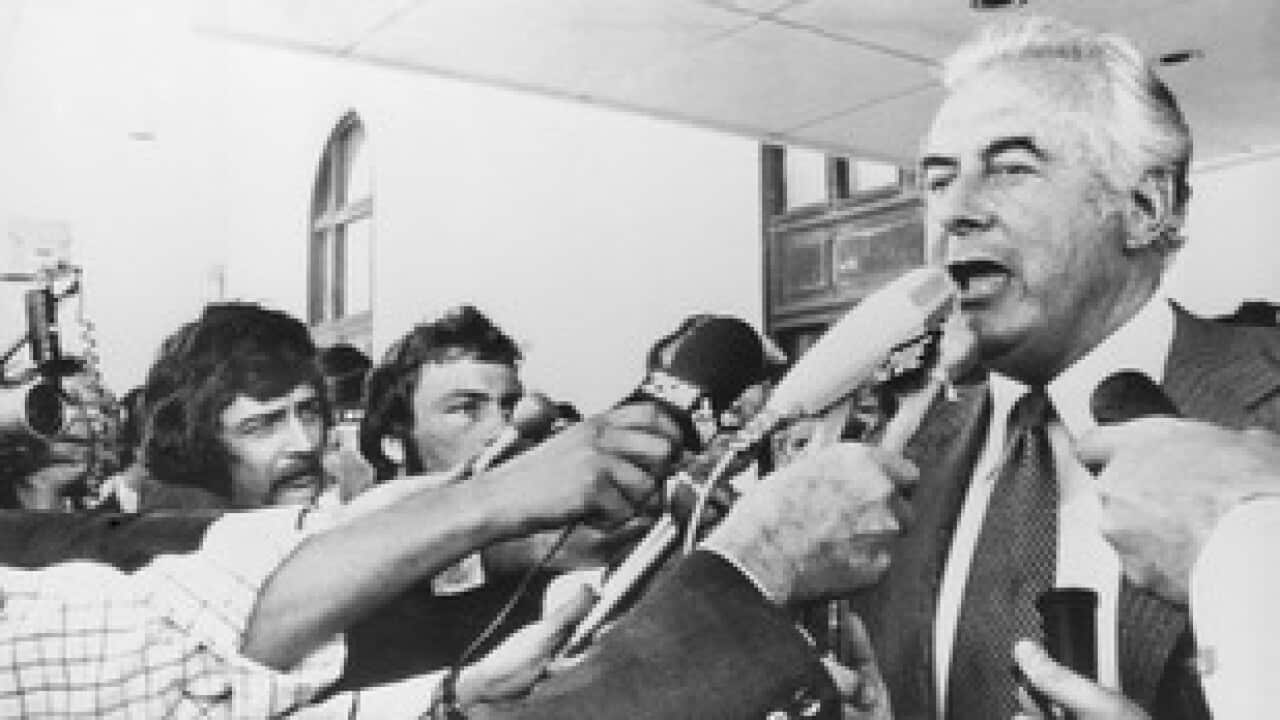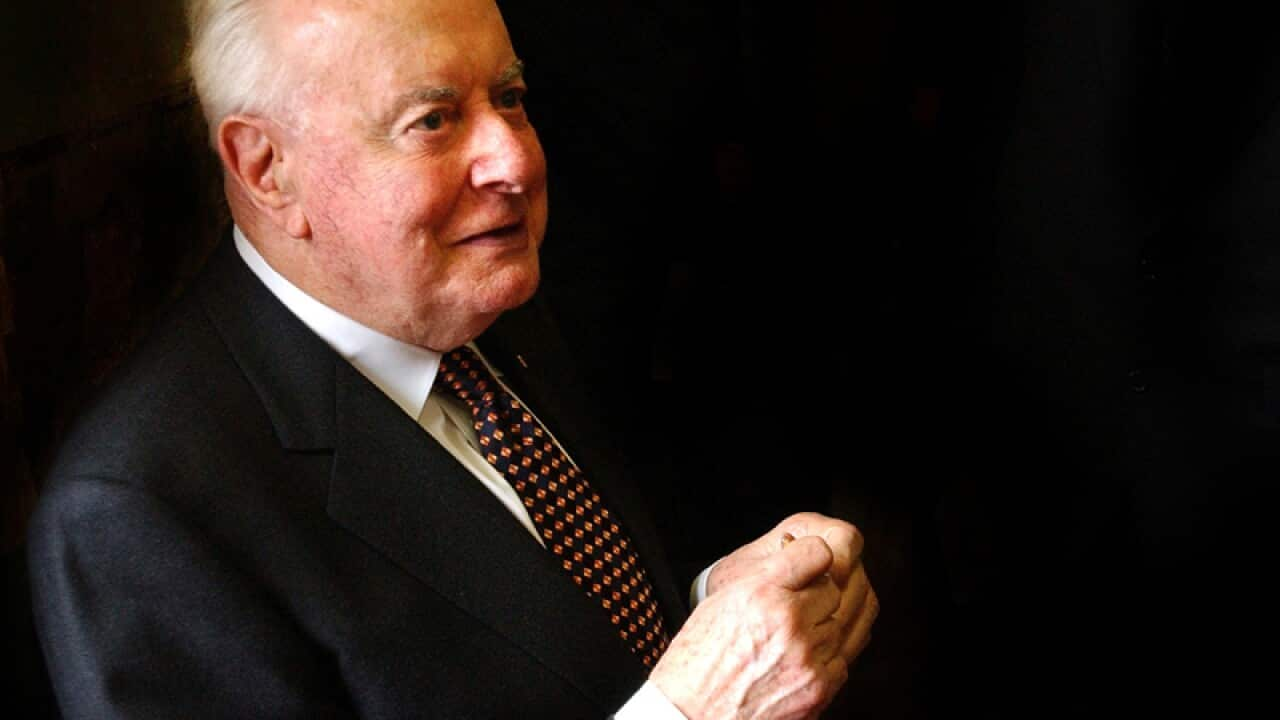Letters between the Queen and the governor-general who dismissed Gough Whitlam should be accessible to the public, the High Court has ruled.
The judgment handed down on Friday comes after a legal battle by historian Jenny Hocking, who says keeping them secret only fuels public distrust.
She says the archive must now release them immediately. The so-called palace letters between Buckingham Palace and Sir John Kerr about the time of the 1975 dismissal had been deemed personal communications by the National Archives of Australia and the Federal Court.
The so-called palace letters between Buckingham Palace and Sir John Kerr about the time of the 1975 dismissal had been deemed personal communications by the National Archives of Australia and the Federal Court.

Professor Jenny Hocking speaks to media after learning of her successful court outcome. Source: AAP
That meant they couldn't be released until 2027, and only then with the permission of the Queen.
But a majority of the High Court's full bench has ruled they are in fact commonwealth property.
Although the letters were described as personal and confidential, they were the property of the official establishment of the governor-general, a commonwealth institution, the judgement says.
The court has ordered the archives to reconsider Professor Hocking's request to access the letters, and pay her legal costs.
"A 'Commonwealth record' within the care of the archives must be made available for public access once the record is within the 'open access period'," the judgment from Chief Justice Susan Kiefel and Justices Virginia Bell, Stephen Gageler and Patrick Keane says.
In the case of the letters, that period is 31 years after creation, meaning they should have become public in 2006.
Prof Hocking expects the archives to immediately release the documents.
"I would be horrified if they did (deny access) given the four-year legal case," she told reporters in Melbourne.
"Even cabinet records, the most confidential records of government, are released after 20 years. Unless it has the Queen's medical details in it, you would expect them to be released."
If the archives did continue to refuse access, that would raise questions about what role they were playing in the dismissal matter, she said.
Justices James Edelman and Michelle Gordon agreed the letters were commonwealth records, although published separate reasons.
Justice Gordon said some of the letters' contents may be considered personal.
Justice Geoffrey Nettle made a dissenting judgment, saying the letters should not be deemed commonwealth property simply because Sir John held public office.










